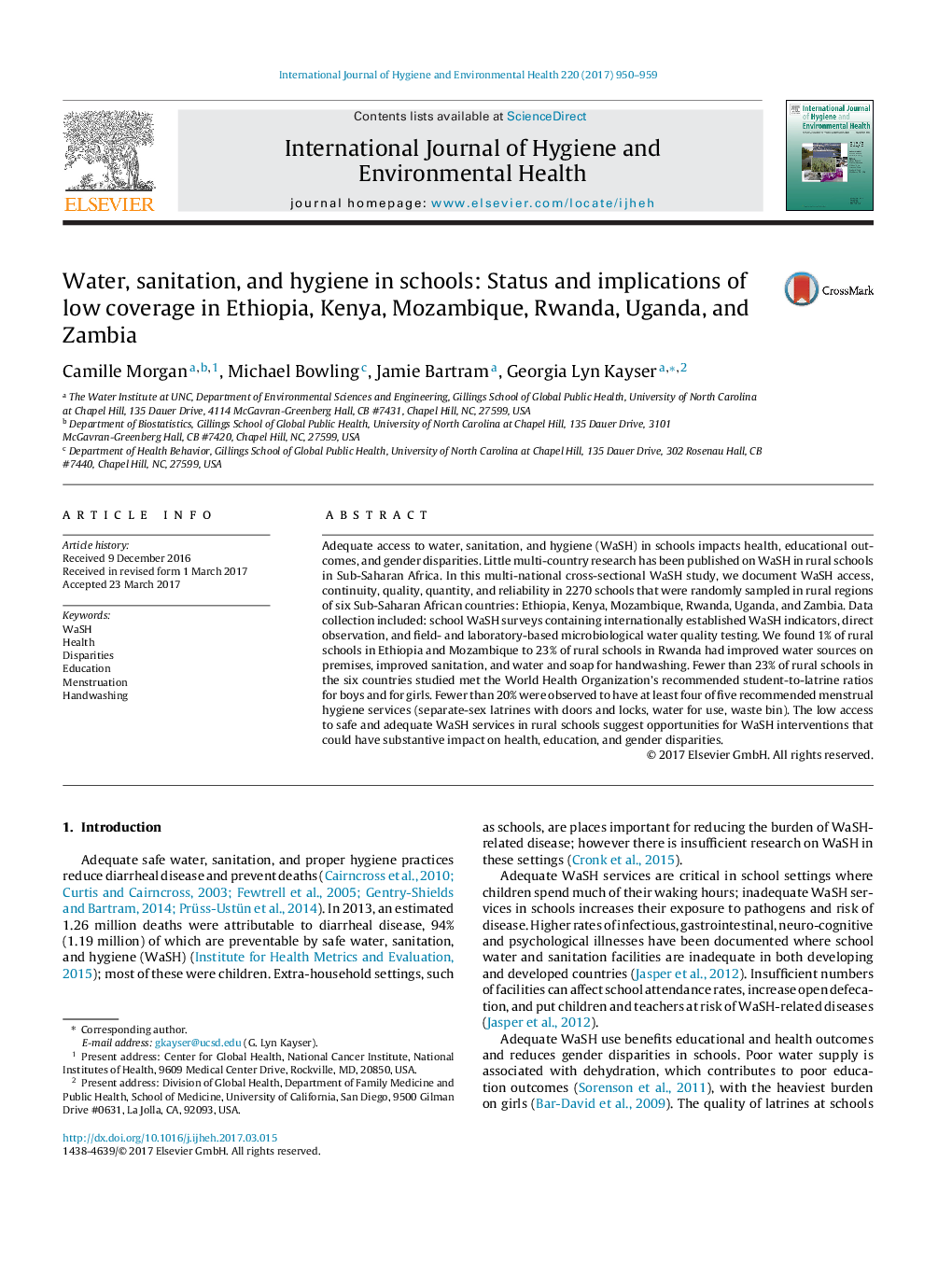| Article ID | Journal | Published Year | Pages | File Type |
|---|---|---|---|---|
| 5560471 | International Journal of Hygiene and Environmental Health | 2017 | 10 Pages |
Adequate access to water, sanitation, and hygiene (WaSH) in schools impacts health, educational outcomes, and gender disparities. Little multi-country research has been published on WaSH in rural schools in Sub-Saharan Africa. In this multi-national cross-sectional WaSH study, we document WaSH access, continuity, quality, quantity, and reliability in 2270 schools that were randomly sampled in rural regions of six Sub-Saharan African countries: Ethiopia, Kenya, Mozambique, Rwanda, Uganda, and Zambia. Data collection included: school WaSH surveys containing internationally established WaSH indicators, direct observation, and field- and laboratory-based microbiological water quality testing. We found 1% of rural schools in Ethiopia and Mozambique to 23% of rural schools in Rwanda had improved water sources on premises, improved sanitation, and water and soap for handwashing. Fewer than 23% of rural schools in the six countries studied met the World Health Organization's recommended student-to-latrine ratios for boys and for girls. Fewer than 20% were observed to have at least four of five recommended menstrual hygiene services (separate-sex latrines with doors and locks, water for use, waste bin). The low access to safe and adequate WaSH services in rural schools suggest opportunities for WaSH interventions that could have substantive impact on health, education, and gender disparities.
